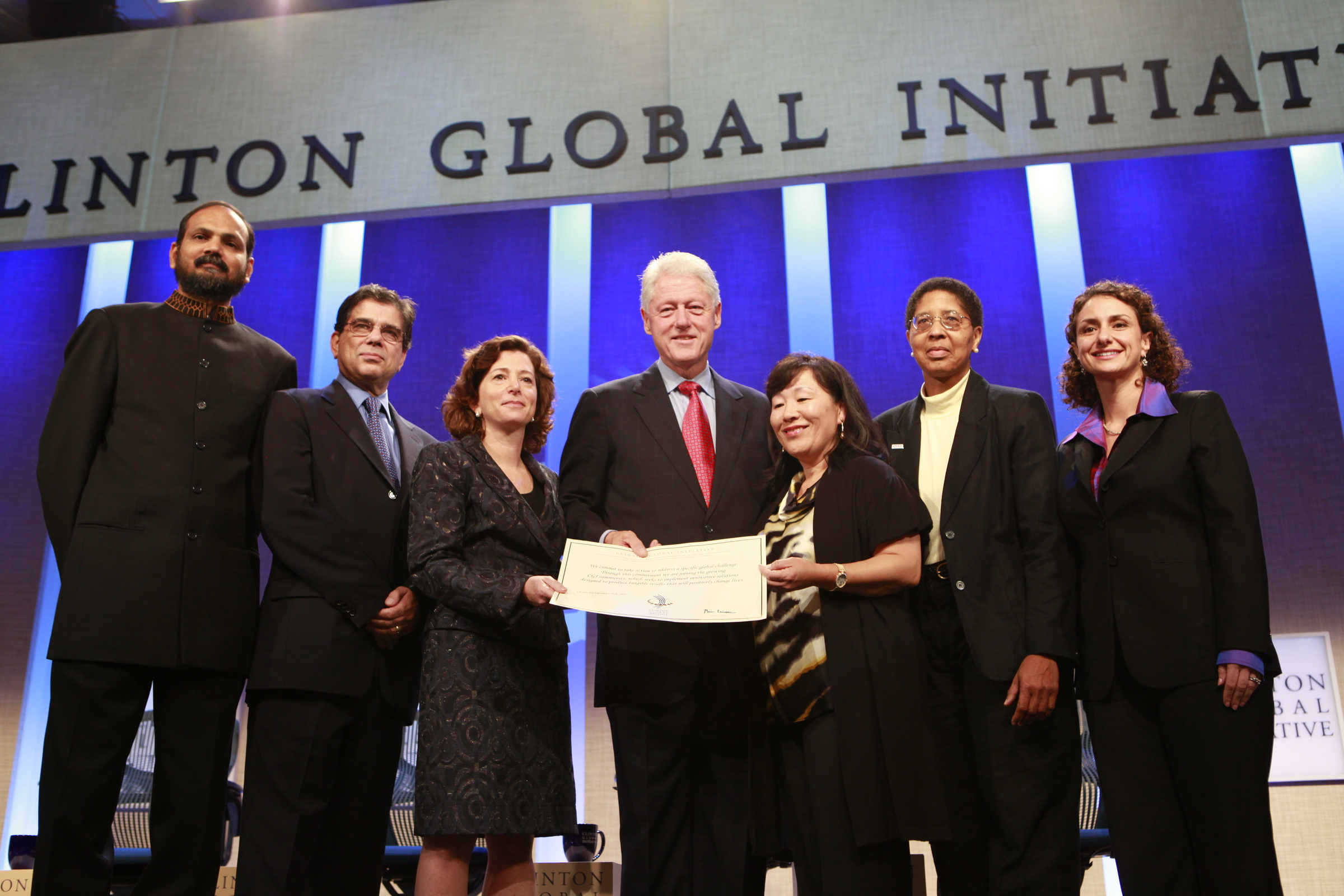Corporate partners announce projects with UNHCR at annual Clinton Global Initiative meet
Corporate partners announce projects with UNHCR at annual Clinton Global Initiative meet

NEW YORK, United States, September 25 (UNHCR) - The UN refugee agency and two of its corporate partners have announced technology-based projects that will help improve the lives of tens of thousands of refugees in Africa and Asia.
The announcements by UNHCR, computer technology giant Microsoft, and Portugal's largest energy company, EDP, came earlier this week at the annual meeting in New York of the Clinton Global Initiative. The project with Microsoft will give refugees in 11 countries access to computers, while EDP will bring renewable energy solutions to benefit some 50,000 people in north-west Kenya's Kakuma Refugee Camp.
The Community Technology Access (CTA) project, launched in partnership with Microsoft and PricewaterhouseCoopers, will allow refugees to use computer technology for education as well as business and livelihoods purposes.
Three pilot CTA centres, using solar power and providing rugged PC solutions and Internet access, are being built at refugee camps in Bangladesh and Rwanda. Under the second phase of the project, starting in 2010, a further 19 centres will be established at camps in nine more countries.
"The project shows that we recognize ICT [information and communications technologies] as being a crucial resource for facilitating knowledge and education, particularly in remote areas where teachers and education resources are scarce," said Olivier Delarue, UNHCR's senior corporate relations officer, who attended the New York event on Thursday.
Pamela Passman, head of Microsoft's Global Corporate Affairs section, said the CTA programme addressed the challenges of making technology work in remote and rugged refugee camp situations. "This provides not only a platform for improving education, it is also a path to developing valuable workforce skills for adult refugees."
In a separate announcement, UNHCR and EDP on Wednesday unveiled a project to bring renewable energy solutions to Kakuma, where high demand for scarce or expensive energy resources such as firewood and kerosene has a huge impact on the camp's sustainability. The partners hope the programme will counter the rapid depletion of natural resources and create lasting personal and social benefits both for refugees and neighbouring communities.
EDP will help UNHCR install solar panels, improved diesel generators and solar ovens, while supporting social entrepreneurship and reforestation schemes that will reduce energy costs at the same time as helping to improving refugees' health, living conditions and livelihoods. The project should yield valuable lessons for UNHCR as it examines the role of climate change in forced displacement.
UN High Commissioner António Guterres, who was at the Wednesday event, welcomed the two projects. "We believe that providing access to technology, particularly in remote areas, can help restore some of the stability these people had known as well as providing crucial access to education and livelihood opportunities, in particular for refugee women and girls."








